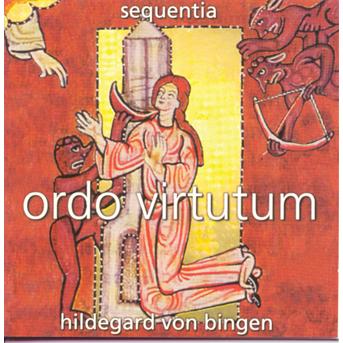Karl-Heinz Oswald, Hildegard of Bingen, Historisches Museum, Bingen, 1998
On May 10, 2012, Pope Benedict XVI extended the local liturgical cult of Saint Hildegard of Bingen to the world-wide Roman Catholic Church with a universal feast to be observed on September 17. Saint Hildegard has never been officially canonized but Benedict has now added her to the "catalogue of the saints."
Saint Hildegard of Bingen (German: Hildegard von Bingen; Latin: Hildegardis Bingensis) (1098 – 17 September 1179), also known as the Sibyl of the Rhine, was a German writer, composer, philosopher, Christian mystic, Benedictine abbess, visionary, and polymath. Elected a magistra by her fellow nuns in 1136, she founded the monasteries of Rupertsberg in 1150 and Eibingen in 1165. One of her works as a composer, the Ordo Virtutum, is an early example of liturgical drama and arguably the oldest surviving morality play.
She wrote theological, botanical and medicinal texts, as well as letters, liturgical songs, and poems, while supervising brilliant miniature Illuminations.

Ordo Virtutum, performed by Sequentia [musicMe]
Complete text with the original Latin and English translation
______________
More Hildegard von Bingen music on musicMe, on YouTube and Grooveshark.
A wide selection is available on the Naxos Music Library performed by Sinfonye, Stevie Wishart conducting. [BNQ; BM] (info)

